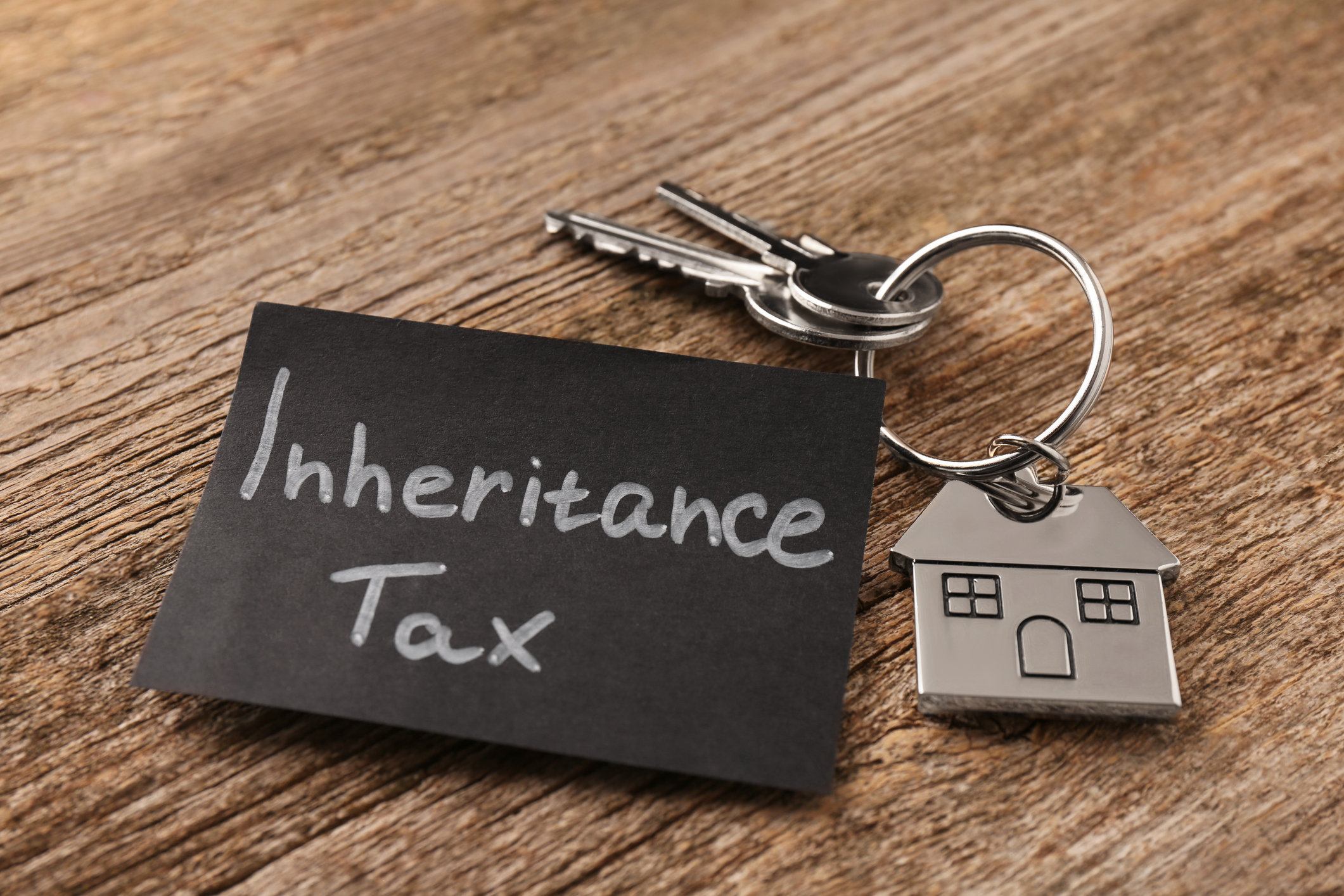What is inheritance tax (IHT)?
What is inheritance tax (IHT) and why are more families falling into the tax trap? What is IHT and who has to pay it?

Ruth Emery

Get the latest financial news, insights and expert analysis from our award-winning MoneyWeek team, to help you understand what really matters when it comes to your finances.
You are now subscribed
Your newsletter sign-up was successful
Want to add more newsletters?

Twice daily
MoneyWeek
Get the latest financial news, insights and expert analysis from our award-winning MoneyWeek team, to help you understand what really matters when it comes to your finances.

Four times a week
Look After My Bills
Sign up to our free money-saving newsletter, filled with the latest news and expert advice to help you find the best tips and deals for managing your bills. Start saving today!
More families are falling into the inheritance tax (IHT) trap, and the government is raising record sums from it – but what is IHT?
IHT is charged on the total value of your assets above a certain threshold when you die. The government raked in a record-breaking £8.2 billion in the 2024/25 tax year in inheritance tax receipts, as frozen IHT thresholds mean more estates are paying this so-called ‘death tax’ due to high property prices and rising asset values.
This was the fourth consecutive annual record sum. The amount taken surpasses the £7.5 billion total from the tax in 2023/24 by £750 million, or 10%, according to the latest data from HM Revenue & Customs.
MoneyWeek
Subscribe to MoneyWeek today and get your first six magazine issues absolutely FREE

Sign up to Money Morning
Don't miss the latest investment and personal finances news, market analysis, plus money-saving tips with our free twice-daily newsletter
Don't miss the latest investment and personal finances news, market analysis, plus money-saving tips with our free twice-daily newsletter
Meanwhile, Rachel Reeves's maiden Budget in October 2024 unveiled changes to the inheritance tax regime, most notably subjecting pension pots to the tax. She also announced that the £325,000 tax-free allowance (known as the "nil-rate band") would be frozen until 2030.
What exactly is inheritance tax, who pays it, and how can you reduce how much goes to the taxman?
What is inheritance tax (IHT)?
IHT is a tax on your estate when you die. It’s payable on your property, possessions, savings, investments and business assets. It may also be due on gifts made within seven years before death.
IHT is charged at 40%, but only on the value of your estate above a certain threshold, known as the nil-rate band. So if your estate is £100,000 above the IHT threshold, then this tax is payable on this extra amount, not the total value of your estate.
However, the amount of IHT you pay isn’t necessarily as simple as it sounds. It’s important to understand the IHT thresholds, and how to reduce your liability to this tax.
What are the IHT thresholds?
The IHT threshold is currently set at £325,000 per person. If the value of your estate exceeds this amount, the excess may be taxed at 40%.
However, you can leave any amount tax-free to your spouse or civil partner, and you will get a bigger allowance if you leave your home to a direct descendant like a child or grandchild.
For example, if an estate is valued at £500,000 and the nil-rate band is £325,000, IHT could be charged at 40% on the remaining £175,000. This leaves an IHT bill of £70,000. But if you left your estate to your spouse or civil partner, they wouldn’t need to pay this bill.
If you're married or in a civil partnership, you can also pass any unused nil-rate band to your partner when you die, potentially doubling your combined IHT threshold to £650,000.
If you leave your home to your children or grandchildren, you can also use the residence nil-rate band. This adds an extra £175,000 to your IHT threshold, increasing it to £500,000.
This means that the combined IHT thresholds for a married couple leaving their main residence to their children or grandchildren could be as high as £1 million, on the second death.
Are pensions subject to IHT?
Pension pots are not currently liable for inheritance tax. They typically fall outside the estate when someone dies, so they can be passed to beneficiaries free of IHT.
However, the chancellor announced in her Budget that the government will bring unused pension funds and death benefits payable from a pension into a person’s estate for IHT purposes from 6 April 2027.
Tom Stevenson, investment director at Fidelity International, said the announcement was “largely expected” as the inheritance tax exemption for pension pots “is something of an anomaly”.
Some experts called the move a "blow for savers", especially because if the pension saver dies after age 75, the beneficiaries could face a double tax of IHT plus income tax on withdrawals.
Who pays IHT?
In most cases, the executor of the will pays IHT to HMRC. If there isn’t a will in place when someone dies, whoever is appointed as the administrator of the estate will make the payment.
IHT is usually paid from the estate, or raised from the sale of estate assets. Rules state that it must be paid by the end of the sixth month after the person’s death. If the tax isn’t paid within this timeframe, HMRC will start charging interest.
Beneficiaries of the estate will usually receive their inheritance only after the IHT has been paid and any other debts or expenses have been settled. However, in some cases, beneficiaries may agree to pay IHT themselves if the estate lacks sufficient funds to cover the tax liability.
According to investment platform AJ Bell, around one in 25 deaths in the UK results in an IHT liability. But the number of estates liable for this tax is expected to increase in the coming years, as the nil-rate band has been frozen until 2030, and pension pots become subject to the tax.
How to reduce an inheritance tax bill
There are several ways to reduce your IHT bill. These include:
Write a will
Making a will ensures your assets are distributed to who you wish when you’re gone, and can help to reduce any IHT liability. You can ensure you make full use of your IHT allowances and reliefs. Without a will, your estate is subject to intestacy rules, which means your loved ones may not inherit what you want, and the taxman may get more than necessary.
Donate to charity
If you leave at least 10% of your estate to charity in your will, you could reduce your IHT rate. You’ll get a 4% discount, reducing it from 40% to 36%. The government IHT calculator will help you to work out if your estate qualifies for the lower rate.
Leave money in your pension
Your retirement pot is usually free of IHT, and you can choose who you wish to inherit this money when you die. However, note that this will change from April 2027, as mentioned previously – so you will need to rethink this either now or in the next few years.
Make gifts during your lifetime
You can avoid inheritance tax by giving away assets to your loved ones during your lifetime. Note that if your gifts are outside the inheritance tax gift allowances, you may need to pay inheritance tax, if they're given less than seven years before death.
- You can gift up to £3,000 per year without this money being subject to IHT. Unused allowances from the previous year can be carried forward, increasing this allowance to £6,000.
- You can also give as many smaller gifts of £250 per person as you wish, providing that you haven’t used another IHT exemption on the same person.
- Wedding gifts of up to £5,000 for children and £2,500 for grandchildren are also exempt.
- Gifts made more than seven years before death – known as potentially exempt transfers (PETs) - are typically IHT-free. If you die within seven years of making the gift, IHT is due on a sliding scale. If you die within three years, the full 40% rate applies, falling to 8% if you die six to seven years after the gift.
Take out life insurance
If you’re aware that your estate will breach the IHT threshold, you could take out a whole of life insurance policy to pay a lump sum to your family when you die. This money could be used to cover any IHT due.
Make sure, though, to write a life insurance policy in trust. This way, it’ll be considered outside of your estate and can pay out without probate having been granted.
Ian Dyall, head of estate planning at wealth manager Evelyn Partners, said: “This is generally a much more efficient way of funding the liability and it solves a cashflow issue many executors face.
"Inheritance tax has to be paid before probate can be granted, but probate needs to be granted before the assets in the estate are released.”
Invest in AIM shares
AIM shares allow you to invest in smaller companies, which may come with IHT benefits. Some of these shares qualify for business property relief, which means they are exempt from IHT.
However, note that this will change from April 2026 as part of an IHT crackdown. The government is reducing the rate of business property relief to 50% for shares designated as “not listed” on the markets of a recognised stock exchange, such as AIM. This means an IHT rate of 20% will apply.
Get the latest financial news, insights and expert analysis from our award-winning MoneyWeek team, to help you understand what really matters when it comes to your finances.
Harriet Meyer is passionate about helping people manage their finances. She's won national awards for 'cutting through the jargon' around the more complex areas of pensions and investments. Harriet is a regulator contributor to a range of national newspapers, magazines, and websites. She started her career as part of the Daily Telegraph's Money team, and has since edited The Observer newspaper's 'Cash' section and worked as a producer for BBC Radio Five Live's Wake up to Money. Outside of work, she loves exploring the world and volunteers for Crisis.
- Ruth EmeryContributing editor
-
 Should you buy an active ETF?
Should you buy an active ETF?ETFs are often mischaracterised as passive products, but they can be a convenient way to add active management to your portfolio
-
 Power up your pension before 5 April – easy ways to save before the tax year end
Power up your pension before 5 April – easy ways to save before the tax year endWith the end of the tax year looming, pension savers currently have a window to review and maximise what’s going into their retirement funds – we look at how
